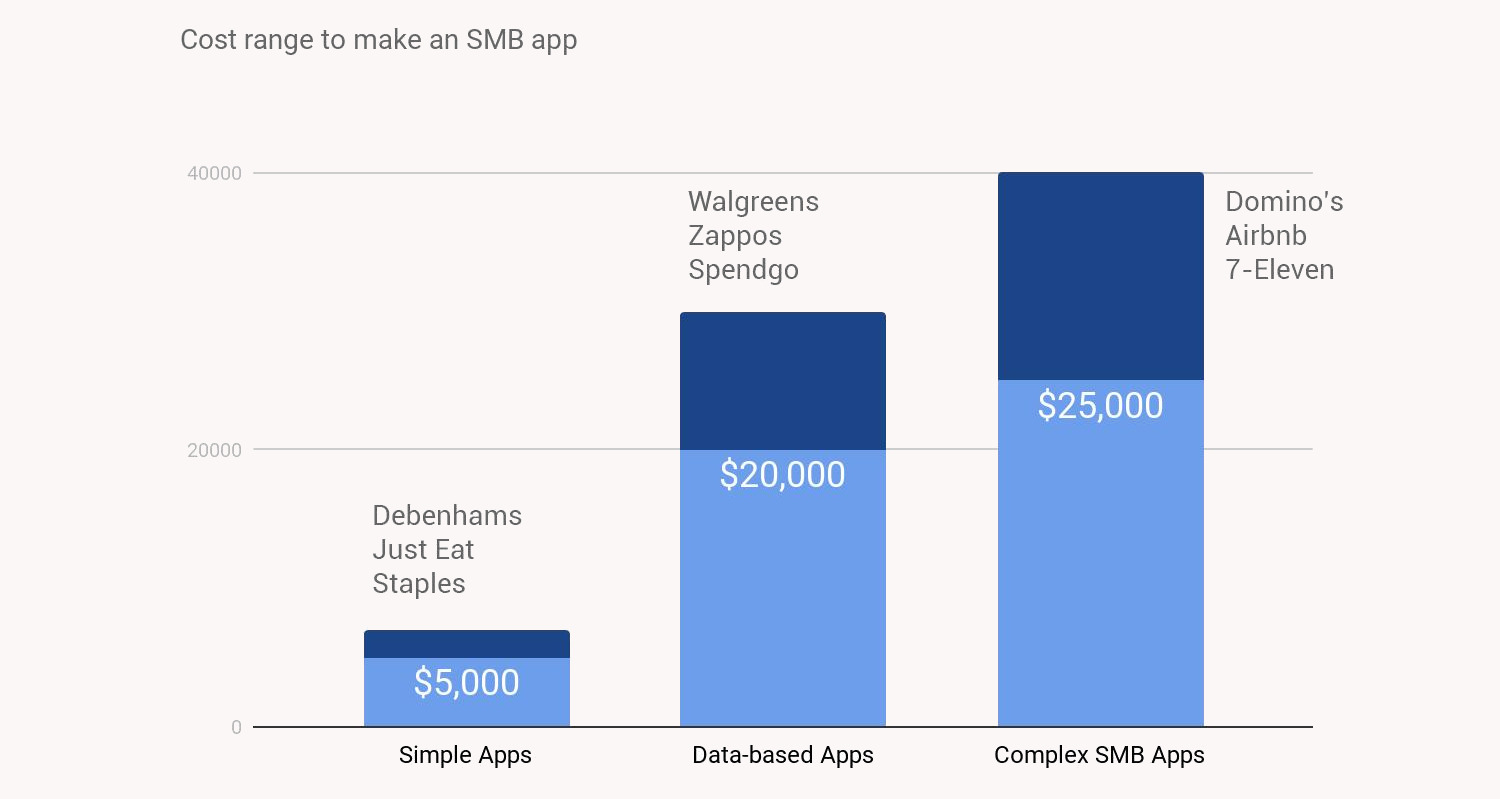Large businesses like Walmart, Ikea and Volkswagen may have the budgets to build apps and maintain them, but same businesses can’t afford to pay 10,000 dollars for an excellent application until there is a guarantee that it would come back from new sales and orders.
How much it would cost?
Honestly, it is near impossible to evaluate an exact cost to make an app before getting to know about every feature, screen and UI element that it would have. Moreover, the type of an app also plays an important role.
- Web apps would be the cheapest, but would not work without an internet connection.
- Hybrid apps allow you to hit many platforms, but lack in APIs and performance.
- Native apps are the best, however would cost you most and are limited by the single platform.
Besides, development of a mobile app is not easy. There are a lot of moments to think about before jumping into the development process.
Platform
If you choose a native app for some reason, instead of web or hybrid app, you also should choose an exact platform you want it to be built for. The best of course are Android or iOS, because these two dominate the market. Meantime, the price of development would be different for each platform.
- Mostly, iOS is faster to develop. As a result it would cost you less, because developers traditionally charge cost per hour.
- Look for platform popularity statistics in your area. Get feedback from your target audience and check trends. Choose wisely, not randomly.
Meantime, if you choose a web or hybrid app, you get all in one, cheaper, but with a few new problems. As we have said, disadvantages of multi-platform choice are lack of performance, APIs and some security issues.
Features and functionality
This category will actually put the price of development for your mobile app. Despite the platform you choose, features are everything you really should care about. Choosing right and dropping useless ones are really a hard task, especially if you don’t have any experience in app development.
- It would be wise to make a priority list from all your ideas and features you want to see in the app.
- Fortunately, most development companies make estimation for free. So you also may get a price for each feature you want to think about.
In this case, the best is to make MVP (Minimum Viable Product) and test it before you go for a full-featured app. MVP will help you check your app usability among your audience and get information about features people want to see in the app and features that have been given a miss.
Size and complexity
It is obvious, the larger an app is, the more time it requires to be built and as a result it determines how much it would cost.
Simple, small apps
These apps are mainly used to inform a customer about your business, collection, services or assortment. It also redirects users to sources with more information about topics they are interested in.
These apps would cost you from $1,000 to $5,000.
Data-based apps
- These apps enable users to search, filter and sort your collection and assortment.
- Check more detailed info about products and services and their prices.
- Get known about your deals and events.
The price of such applications usually starts from $5,000 and rarely goes higher than $30,000.

What benefits does an app bring to small businesses?
So, what a mobile app can provide for small businesses that a common website can’t? Nearly nothing until you aren’t ready to bring something more than just information about your business, your services and your assortment. Instead you should go for web presence instead of mobile.
So, how apps should be used right if you don’t want to fail them?
- 7-Eleven app attracts its users to its stores providing them with coupons and marking way to the nearest shop.
- Caremark and Walgreens provide their users with reminders, scanners and shopping lists. Useful things in big supermarkets.
- Starbucks customers receive loyalty points and can exchange them for products they like.
- Valpak app informs users about deals and discounts.
How it affects your business?
Researches and surveys admired year by year growth for app users. As you have seen above, large and famous brands are already trying to derive benefits from their apps and increase footfalls to their stores. So, if you know how to work with people and know how to make them interested by your app, you also may join them and get your part from a pie.
- Users love to make purchases from a retailer app.
- Customers are loyal to shops that provide them with apps, instead of those who don’t.
- Advanced features like augmented reality significantly raise sales.
- Customers like price checkers and product customizations.
- Shop visitors admit that they spend more time in the shop and even buy those products they didn’t plan to buy because of an app.
Conclusion
If you have decided to make a mobile app for your small business, don’t copy website content on to it. In this case, the mobile app significantly loses to a website in SEO and most people don’t want to store apps they rarely use.
Use mobile application advantages and bring really useful and engagement experience to your clients. Only in this case you would prevail and money invested into your app would return soon.
Read More: How low code solutions eliminate common obstacles to Enterprise Mobile Application adoption
